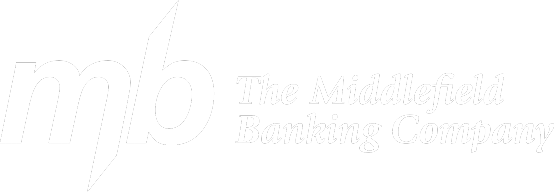Home Buying 101
Posted On: June 1, 2021 by The Middlefield Banking Company in: Budget Mortgages Personal Loans Savings

Becoming a homeowner for the first time is no easy task! You’ve probably heard horror stories from friends about overpaying or missing a crucial piece of information before committing to an offer. Here are a few tips to help you prepare for buying your first (or next) home so you feel confident in the home buying journey!
Before You Buy
- Start Saving Early – the earlier you start saving, the better! Many first-time homeowners assume they just need to save for a down payment, but home buyers must also pay closing costs up front! Closing costs include the down payment, title insurance, homeowner's insurance, property tax, closing or escrow fee and others depending on your lender. Plus, the larger your down payment, the less you’ll pay in interest as you pay off the home loan.
- Strengthen Your Credit Score – if you know you’re going to purchase a house in the next few years, it’s a good idea to take action to earn a higher credit score. Start by making sure your bills are paid on time, pay off debt you have and keep credit card balances low.
- Learn About Mortgage Options – there are several different mortgage options to look into before you commit to a home loan. These include conventional loans, Federal Housing Administration (FHA) loans, U.S. Department of Agriculture (USDA) loans and loans from the Department of Federal Affairs.
- Find First-Time Home Buyer Programs – many states will assist with your down payment! Check with us to see what programs we recommend.
- Decide How Much You Can Afford – it's a good idea to set your budget before you start shopping or get pre-approved for a home loan. Check out these mortgage calculators to see how much house you can afford.
While You Look for the Perfect Home
- Get Pre-Approved – ask your lender to draft a pre-approval letter to send to a potential seller when you’re ready. If it’s all sorted out beforehand, you can put an offer in on your dream house quickly.
- Don’t Look at Houses Over Your Budget – this is a great rule of thumb for sticking to any budget, don’t look at what you can’t afford! You don’t want to fall in love with something that’s not realistic for your income level and prior financial commitments.
- Create a Priority List – decide what home features are important to you. This will help you weigh the pros and cons of each house. For example, if an office space is more important to you than having a large backyard, you’ll be able to narrow down your search easier.
When You’re Ready to Make an Offer
- Pay for an Inspection – not only do inspections help you negotiate the price of a home down, but they also help you know what you’re paying for.
- Negotiate with the Seller – don’t be afraid to negotiate! In most instances, the worst-case scenario is that the seller will come back with a counteroffer.
- Buy the Right Home Insurance – home insurance covers the cost to repair or replace your home and belongings if they're damaged by an incident covered in the policy. It also provides liability insurance if you're held responsible for an injury or accident. Buy enough home insurance to cover the cost of rebuilding the home if it's destroyed.
If you’re in the market to buy a home, reach out to us! We’re here to help you find the right home loan for your budget.

0 comments